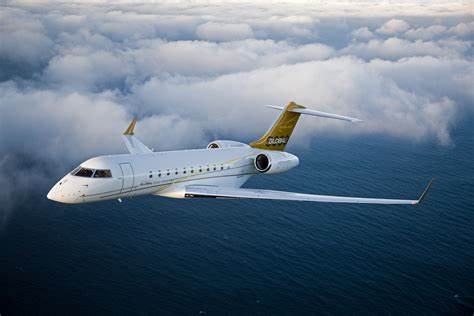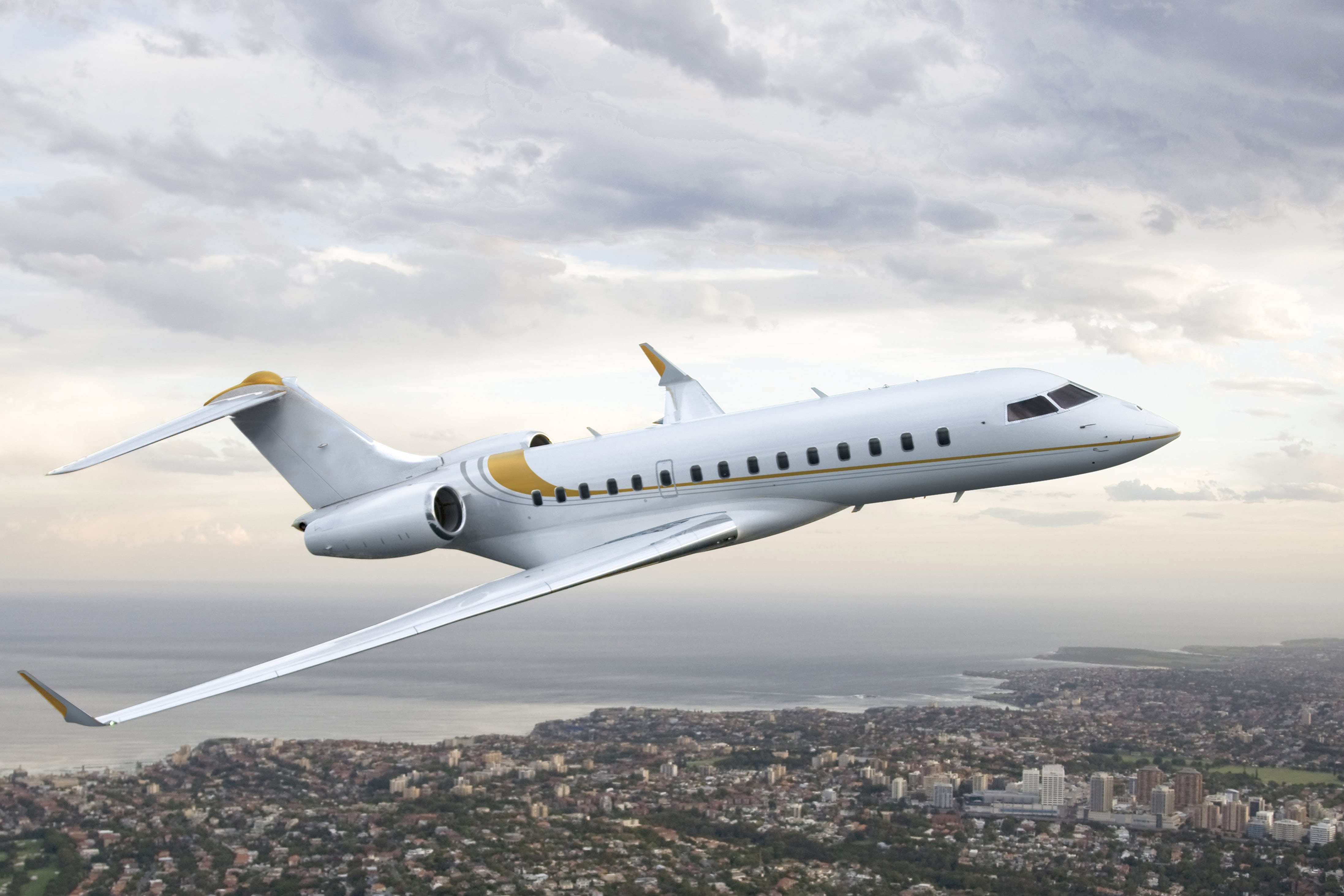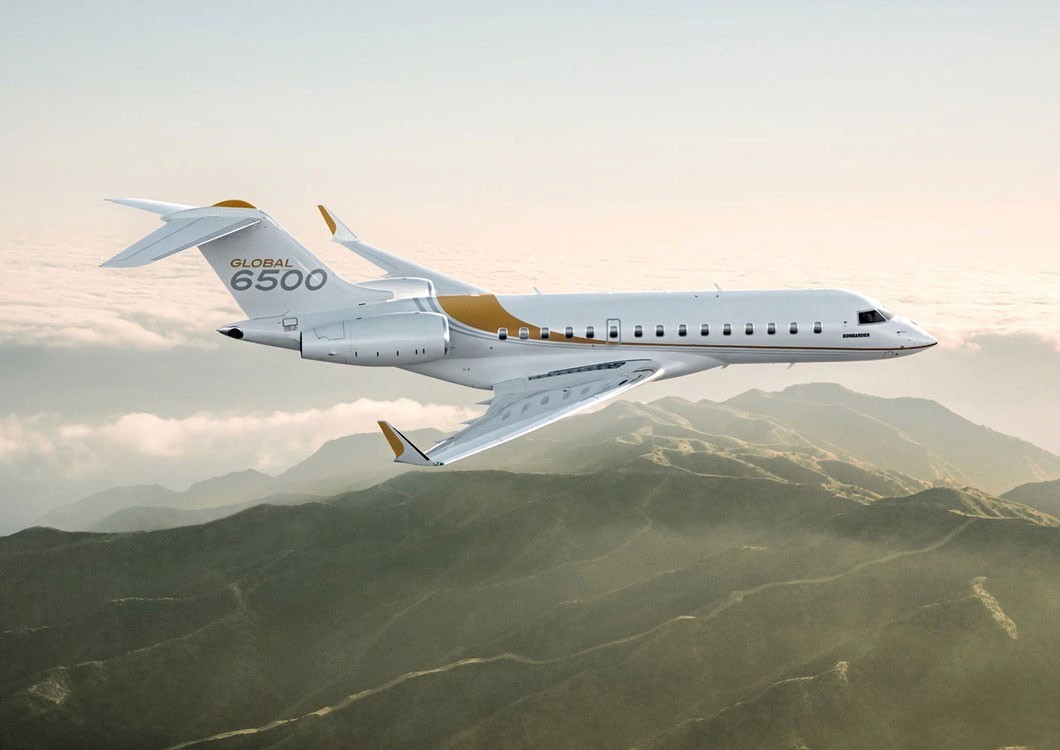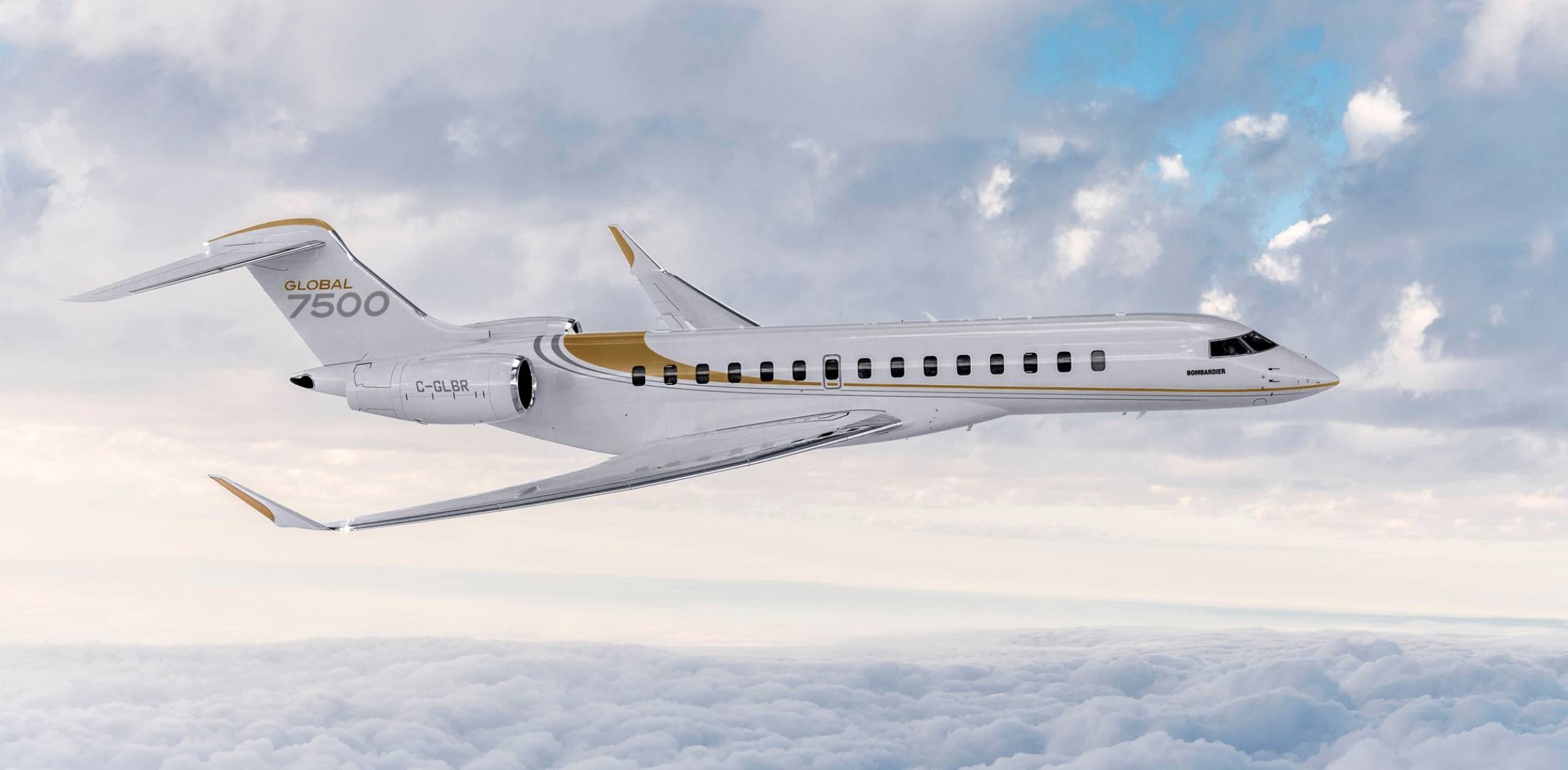Challenger 605
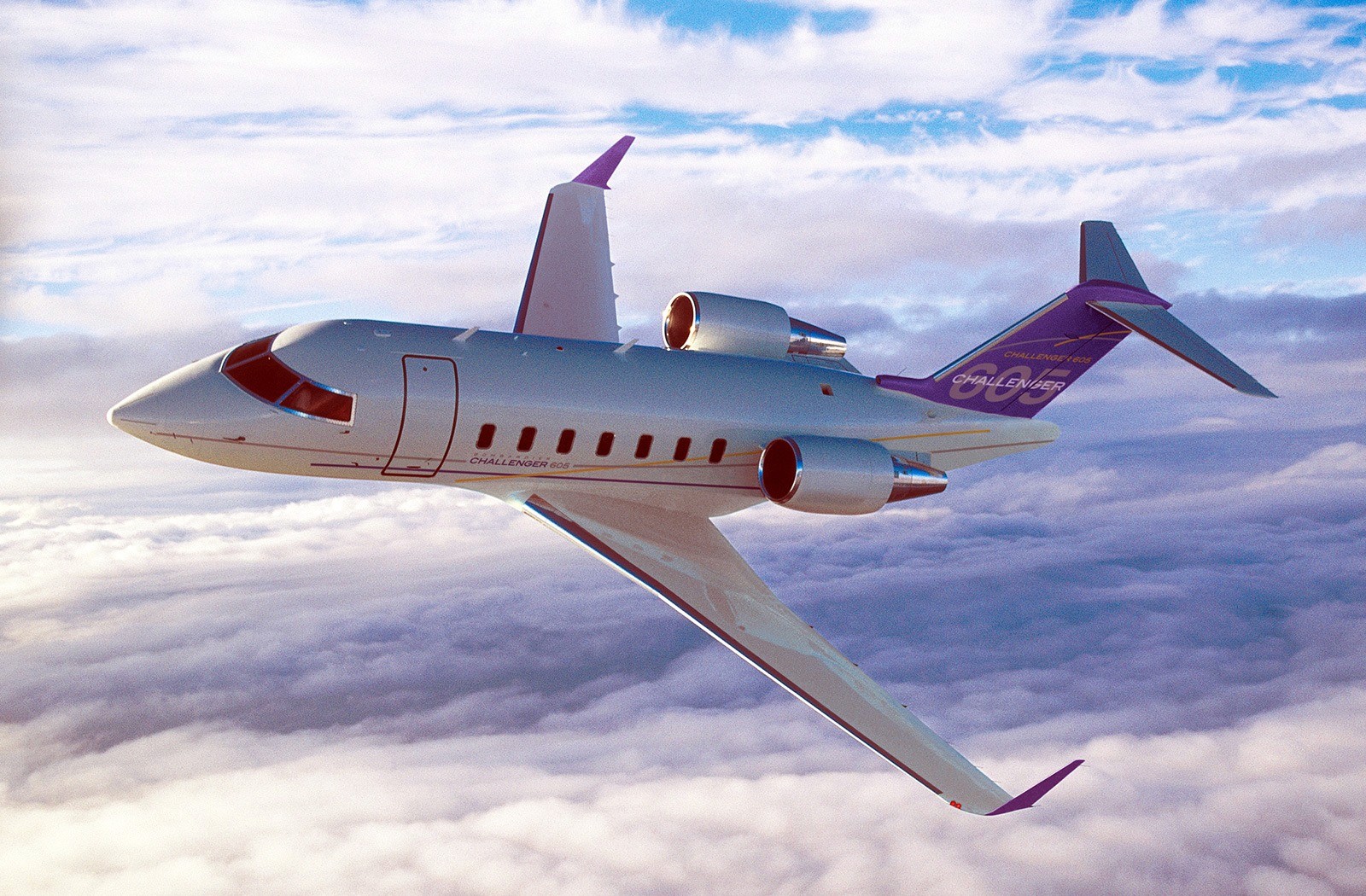
The Bombardier Challenger 605 is a large, long-range business jet that was introduced in 2006 as a successor to the Challenger 604. It has a maximum range of 4,000 nautical miles (7,408 km) and can carry up to 12 passengers.
The Challenger 605 is powered by two General Electric CF34-3B turbofan engines, each producing 8,729 pounds of thrust. It has a maximum cruise speed of Mach 0.80 and can fly at a maximum altitude of 41,000 feet.
The cabin of the Challenger 605 is spacious and comfortable, with a length of 28.4 feet, width of 8.2 feet, and height of 6.1 feet. It typically features a forward galley, a separate lavatory, and a range of seating configurations, including a three-seat divan.
The cabin can be configured to accommodate up to 12 passengers, with the option of adding an additional seat or a crew rest area.
The avionics suite on the Challenger 605 includes a Collins Pro Line 21 system, which features four large displays and a range of advanced navigation and communication capabilities.
Other features include an Enhanced Ground Proximity Warning System (EGPWS), a Traffic Collision Avoidance System (TCAS II), and weather radar.
Overall, the Challenger 605 is a reliable and comfortable aircraft that is well-suited for long-range flights and can accommodate a range of passenger and crew needs.
